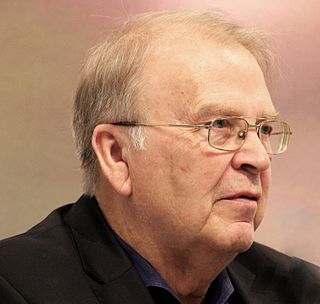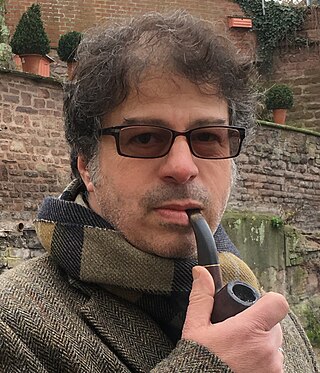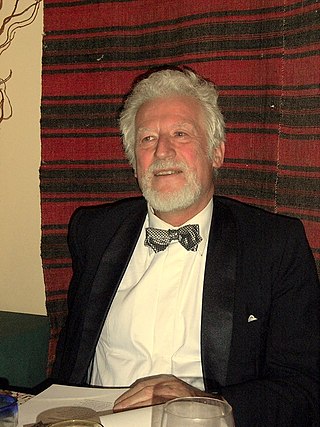Related Research Articles

Christian Karl Friedrich Hülsen was a German architectural historian of the classical era who later changed to studying the Middle Ages and the Renaissance.

Wilhelm Genazino was a German journalist and author. He worked first as a journalist for the satirical magazine pardon and for Lesezeichen. From the early 1970s, he was a freelance writer who became known by a trilogy of novels, Abschaffel-Trilogie, completed in 1979. It was followed by more novels and two plays. Among his many awards is the prestigious Georg Büchner Prize.

Joachim Latacz is a German classical philologist.

Géza Alföldy was a Hungarian historian of ancient history.
Manfred Fuhrmann was a professor for classical Latin philology and one of the most eminent German philologists.
Hans Diller was a German classical scholar and historian of ancient Greek medicine.

The so-called Alcestis Barcinonensis is a mythological poem of at least 124 Latin hexameters on the story of Alcestis dying for the sake of her husband Admetus, following by and large the play by Euripides. The poem has been written on four papyrus leaves dated to the second half of the fourth century on account of the handwriting, an early half-uncial with cursive elements, and inserted into a codex mixtus at some later point in time. The editio princeps has been published by the Catalan priest and papyrologist Ramon Roca-Puig on 18 October 1982. The papyrus leaves are now in the possession of the foundation Sant Lluc Evangelista founded by Roca-Puig and located in Barcelona.
Peter Kruschwitz FHEA FRHistS M.A.E. is Professor of Ancient Cultural History at the University of Vienna. He specialises in Roman poetic culture and song culture with a particular focus on Latin verse inscriptions and non-elite cultural practice. He has published widely on Roman comedy, Latin linguistics and Roman linguistic discourse, the wall inscriptions of Pompeii and Herculaneum, and Roman metre.

John T. Hamilton is a literary scholar, musician, and William R. Kenan Professor of German and Comparative Literature at Harvard University. He previously held positions at the University of California-Santa Cruz and New York University, and has also taught as a visiting professor at the Institute of Greece, Rome, and the Classical Tradition at Bristol University. Numerous academic fellowships include the Wissenschaftskolleg zu Berlin, the ETH-Zürich, the Zentrum für Literatur- und Kulturforschung Berlin, and the Hamburg Institute for Advanced Study.
Herbert Hahn was a German teacher and Anthroposophist.

The Lower Germanic Limes is the former frontier between the Roman province of Germania Inferior and Germania Magna. The Lower Germanic Limes separated that part of the Rhineland left of the Rhine as well as the southern part of the Netherlands, which was part of the Roman Empire, from the less tightly controlled regions east of the Rhine.

The Neckar-Odenwald Limes is a collective term for two, very different early sections of the Upper Germanic-Rhaetian Limes, a Roman defensive frontier line that may have been utilised during slightly different periods in history. The Neckar-Odenwald Limes consists of the northern Odenwald Limes (Odenwaldlimes), a cross-country limes with camps, watchtowers and palisades, which linked the River Main with the Neckar, and the adjoining southern Neckar Limes (Neckarlimes), which in earlier research was seen as a typical 'riverine limes', whereby the river replaced the function of the palisade as an approach obstacle. More recent research has thrown a different light on this way of viewing things that means may have to be relativized in future. The resulting research is ongoing.

Walter Hinck was a German Germanist and writer. He was professor of German literature at the University of Cologne from 1964 to 1987.

Friedrich Klingner was a German Classical Philologist. He worked at increasingly senior levels as a university professor, successively at the universities of Hamburg (1925–1930), Leipzig (1930–1947) and Munich (1947–1963). Viewed by admirers as one of the leading latinists of his generation, he advanced the study of Latin literature, producing important studies of Sallust, Virgil, Horace and Tibullus which continue to engage scholars.
Albrecht Riethmüller is a German musicologist.

Helmut Birkhan is an Austrian philologist who is Professor Emeritus of Ancient German Language and Literature and the former Managing Director of the Institute for Germanic Studies at the University of Vienna.

Eugen Fehrle was a German philologist who specialized in classical and Germanic philology.
Gerlinde Huber-Rebenich is a German philologist. She specializes in medieval and neo-Latin literature, and the medieval reception of Ovid.
Albin Lesky was an Austrian classical philologist. He was married to Austrian historian of medicine Erna Lesky.
Fawzi Boubia, born in 1948 in Khemisset, is a Moroccan intellectual.
References
- ↑ Interview to Michael von Albrecht (in Spanish)
- ↑ Vsevolod Zelchenko (18 September 2017). "…Римляне и греки, сочинившие тома для библиотеки…" (in Russian). gefter.ru. Retrieved 20 September 2017.
- ↑ "Prof. Dr. Dr. h.c. Michael von Albrecht – Vita" (in German). University of Heidelberg. Retrieved 20 September 2017.